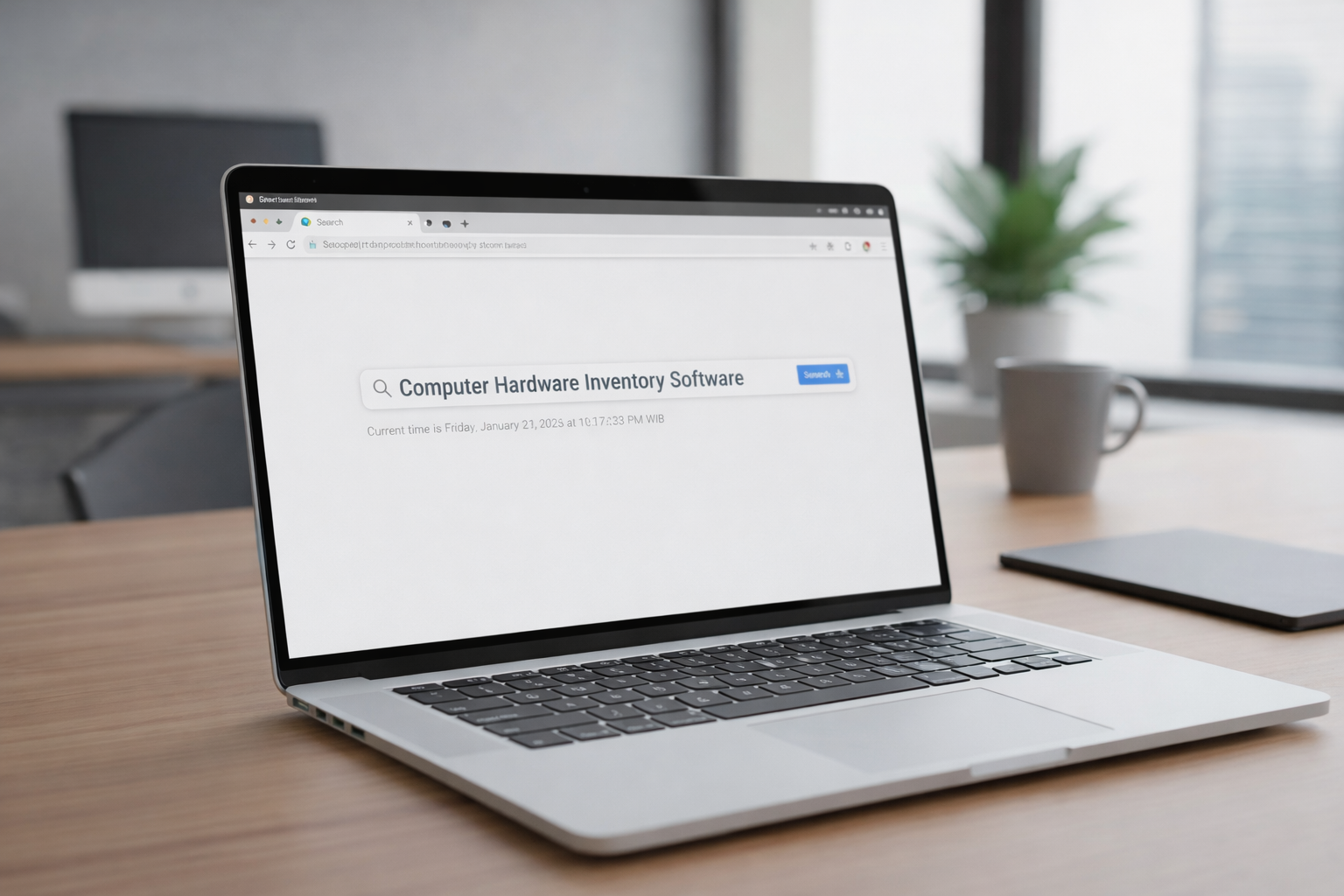Managing a remote or hybrid workforce is tough enough. But things get even more complicated when employees leave and you need to get company laptops back
If you’re still relying on ad hoc shipping or manually chasing people down, you’re risking lost devices, delayed returns, and potential data breaches. And the larger your team grows, the more chaotic this process becomes
That’s where a dedicated laptop retrieval service can help. With the right partner, you can take the hassle out of equipment return — no more confusion, no more chasing, and no more lost laptops.
In this guide, we’ll explore why laptop retrieval matters, what to look for in a service, and who’s doing it best in 2025
Why laptop retrieval matters in a hybrid world
In the past, when teams worked out of the same office, collecting company laptops was as simple as walking down the hall. But in today’s remote-first and hybrid environment, that process looks a lot different
Employees can be scattered across cities, countries, or even continents. When someone leaves the company or upgrades their device, retrieving equipment becomes a logistical puzzle. And if you’re not solving that puzzle well, it can get expensive — fast
Here’s why getting this right is more than just an IT housekeeping task:
Lost laptops cost more than just money
Every unreturned laptop is a hit to your bottom line. But it doesn’t stop there. These devices often contain sensitive data, licensed software, and company credentials. If not properly recovered and wiped, they pose serious security and compliance risks
Many companies also overlook the need for certified IT disposal services when devices aren’t retrieved. That adds legal and environmental risk into the mix
The offboarding experience impacts your brand
Offboarding is one of the last impressions an employee has of your company. A sloppy, disorganized equipment return process? That sticks. Offering an easy, trackable laptop return service shows professionalism and respect for your departing team members
Plus, let’s be honest — no one wants to spend hours figuring out how to ship a laptop internationally or scrambling for packing materials at the last minute
Manual processes don’t scale
If your IT or HR team is still coordinating device returns through spreadsheets and one-off emails, you’re burning time on a task that should be automated. The more remote employees you have, the harder it gets to stay on top of who has what, what’s been sent, and what’s still stuck somewhere in the return shipping black hole
Add in shipping coordination, tracking, and follow-ups — and suddenly you’re drowning in admin work
What to look for in a laptop retrieval service

1. Prepaid return labels and easy to pack kits
Your retrieval service should provide prepaid return labels and laptop boxes that are secure, cushioned, and come with clear instructions. It should be easy to pack, even for a non-tech-savvy employee working from home. Bonus points if they include packing materials like bubble wrap or padding to prevent damage in transit
2. Global shipping and local compliance
If your team is distributed across Asia Pacific — or globally — you need a partner who understands cross-border logistics. That includes handling how to ship a laptop internationally and providing region-specific solutions that comply with customs, taxes, and recycling laws
You shouldn’t have to worry about whether your shipping box is compliant or whether your device gets stuck in transit
3. Real time tracking and updates
A good retrieval partner will provide real time tracking and updates so your IT and operations team can see exactly where the device is in the delivery process and return process
Transparency matters. No one wants to play the “Did it arrive yet?” guessing game
4. Device security and proper handling
Security should never be an afterthought. The retrieval service must offer device retrieval with proper data protection, secure handling, and IT disposal services if a device is no longer needed. That means certified data wiping, locked containers, and proof of destruction where required
5. Scalable process with automation
As your business grows, so should your systems. Look for services that offer automation, integrations with your HRIS or IT tools, and built-in workflows that streamline offboarding. You don’t want to manually initiate a return every time someone exits
Some platforms, like Esevel, even automate the entire equipment retrieval process — from notifying the employee to generating the prepaid shipping label and sending the kit, all in one place
6. Great user experience for your employees
Your team shouldn’t have to deal with a clunky portal, confusing instructions, or unanswered support tickets. The whole process — from receiving the return shipping kit to mailing the laptop back — should be seamless and stress-free
After all, your departing employees are still brand ambassadors. Make the return feel easy and respectful
Top laptop retrieval services for distributed teams
Here are some of the top providers helping businesses handle laptop returns more efficiently in 2025:
1. Esevel
Esevel is a comprehensive IT management platform tailored for businesses with distributed teams worldwide. It offers services ranging from device procurement and global delivery to real-time IT support and secure device retrieval.
Pros:
- Comprehensive IT Management: Offers end-to-end solutions, including device procurement, deployment, management, and retrieval.
- Global Reach: Operates in over 88 countries, ensuring consistent service across regions.
- Security Focused: Provides robust security measures, including certified data wiping and compliance with IT disposal standards.
- User-Friendly Platform: Features an intuitive interface with real-time tracking and updates.
- Responsive Support: Offers 24/5 real-time IT support to address technical issues promptly.
Cons:
- Limited Customization: Some users have noted limited customization options in reporting features.

2. GroWrk
GroWrk specializes in global IT asset management and laptop retrieval services, operating in over 150 countries. Their platform offers real-time tracking, detailed reporting, and prepaid return labels for efficient device returns.
Pros:
- Extensive Global Coverage: Provides services in over 150 countries, ensuring broad reach for distributed teams.
- Integrated Platform: Combines procurement, deployment, storage, retrieval, and disposal into a unified system.
- AI-Driven Support: Utilizes AI for enhanced tracking and analytics, improving asset management efficiency.
- Responsive Customer Service: Known for attentive customer support and willingness to implement user feedback.
Cons:
- Reporting Limitations: Some users have expressed a desire for more advanced reporting features.
- Delivery Delays: Occasional delays in delivery and return processing have been reported.
3. Hofy
Hofy offers a cloud-based platform for managing IT assets, focusing on eco-friendly laptop returns and secure asset management. They provide services like device procurement, global delivery, and lifecycle management.
Pros:
- Eco-Friendly Approach: Emphasizes sustainable practices in device retrieval and disposal.
- Global Delivery: Delivers equipment to over 124 countries, supporting international teams.
- Automated Workflows: Streamlines equipment workflows across HR, IT, and finance departments.
- Loaner Devices: Offers loaner laptops during repairs to minimize employee downtime.
Cons:
- Complex Platform: The extensive features may present a steeper learning curve for some users.
- Pricing Concerns: Recent price increases have been noted, which may impact budget-conscious organizations.
4. Firstbase
Firstbase offers a comprehensive platform for managing the entire lifecycle of IT assets, from procurement to retrieval. It’s designed to streamline operations for companies with distributed teams.
Pros:
- High Retrieval Rates: Achieves up to 97% success in retrieving devices from remote employees, reducing asset loss.
- Global Reach: Supports equipment deployment and retrieval across multiple countries, accommodating international teams.
- Automated Workflows: Integrates with HRIS systems to automate onboarding and offboarding processes, saving time and reducing errors.
- Comprehensive Services: Provides services like device storage, repair, and certified data wiping, ensuring security and compliance.
Cons:
- Limited Customization: Some users have noted a desire for more granular control over asset deployment and retrieval options.
- Geographical Limitations: While expanding, certain regions may not yet be fully supported, potentially limiting service availability in specific areas.
5. Allwhere
Allwhere specializes in IT asset management, focusing on simplifying the retrieval process for companies with remote or hybrid workforces.
Pros:
- Flexible Service Model: Offers a pay-per-use approach without requiring long-term commitments, providing cost-effective solutions for varying needs.
- Employee-Friendly Process: Handles communication directly with employees, including address verification and return reminders, easing the burden on internal teams.
- Quick Turnaround: In the U.S., average retrieval times are less than a week, ensuring prompt device returns.
- Global Capabilities: Supports international retrievals, accommodating companies with a worldwide presence.
Cons:
- Limited Integration: May lack extensive integrations with existing IT or HR systems, potentially requiring manual coordination.
- Service Scope: Primarily focuses on retrieval, with fewer offerings related to device procurement or full lifecycle management.
6. Workwize
Workwize provides a platform for managing IT hardware, including procurement, deployment, and retrieval, catering to companies with global operations.
Pros:
- Comprehensive Platform: Covers the entire IT asset lifecycle, from procurement to disposal, offering a one-stop solution.
- Global Warehouse Network: Operates warehouses in over 100 countries, facilitating quick and efficient device retrievals worldwide.
- Automation and Integration: Features automated workflows and integrations with HRIS systems, streamlining processes and reducing manual tasks.
- Customizable Solutions: Provides tailored services to meet specific organizational needs, enhancing flexibility.
Cons:
- Geographical Limitations: Services are primarily available in the U.S. and Canada, which may limit accessibility for companies in other regions.
- Manual Drop-Offs: Employees outside the service areas may need to manually drop off return packages, potentially causing inconvenience.
7. Retriever
Retriever specializes in streamlining laptop and monitor returns for companies with remote employees. Their services are designed to handle both individual and bulk returns efficiently.
Pros:
- Comprehensive Return Kits: Provides padded boxes, prepaid shipping labels, and clear instructions to ensure safe and straightforward returns.
- Real-Time Tracking: Offers tracking updates throughout the return process, keeping both employers and employees informed.
- Automated Reminders: Sends timely reminders to employees to facilitate prompt returns.
- Flexible Service Options: Caters to both one-off returns and large-scale retrievals without requiring long-term contracts.
Cons:
- Limited International Coverage: Primarily operates in the U.S., Canada, and the U.K., which may not suffice for companies with a broader global presence.
- Customization Constraints: May offer fewer customization options compared to some competitors, potentially limiting integration with specific workflows.
8. ReReady
ReReady is designed to simplify the laptop return process for HR and IT teams, offering a user-friendly platform with automation features.
Pros:
- Quick Setup: Initiating a return takes approximately two minutes, streamlining the process for administrators.
- Automated Communications: Handles employee reminders and tracking updates, reducing manual follow-ups.
- Cost-Effective: Offers competitive pricing, making it an affordable option for businesses of various sizes.
- Integration Capabilities: Supports integrations with platforms like Jamf, BambooHR, and Zenefits, enhancing workflow efficiency.
Cons:
- Geographical Limitations: Services are currently available in select countries, which may not meet the needs of globally distributed teams.
- Limited Asset Scope: Primarily focuses on laptops and monitors, potentially lacking support for other types of equipment.
9. Device Rescue
Device Rescue offers services aimed at simplifying the retrieval of IT assets, focusing on secure packaging and efficient logistics.
Pros:
- Secure Packaging: Provides padded boxes and prepaid shipping labels to ensure the safe return of devices.
- Real-Time Updates: Offers tracking information to monitor the return process effectively.
Bulk Return Support: Capable of handling large-scale retrievals, accommodating the needs of growing companies.
Cons:
- Limited International Reach: Services may not be available in all countries, which could be a drawback for multinational organizations.
- Feature Limitations: May lack some advanced features or integrations offered by other providers, potentially affecting workflow integration.
Best practices for laptop retrieval
Even with a solid laptop retrieval service in place, your success depends on the processes behind it. The goal isn’t just to get the device back — it’s to do it securely, efficiently, and with minimal friction for both your team and your former employees
Start the return process early
Don’t wait until an employee’s last day to begin the return process. As soon as an offboarding date is confirmed, your retrieval system should kick in — sending notifications, shipping the laptop boxes, and generating the prepaid shipping label
Automating this with your HRIS and IT tools can save days of delay and reduce the risk of devices being forgotten or lost
Make it ridiculously easy to return
Let’s be real — if returning a laptop feels like a chore, people will delay it. That’s why you need to make it as simple as possible:
- Provide clear instructions (bonus if it’s visual)
- Include packing materials to protect the device
- Offer a prepaid return label and make the shipping box ready to go
- Add a drop-off location finder or offer door-to-door pickup
In short, make it easier to return the laptop than to ignore it
Use real time tracking and updates
Whether you’re handling five returns or fifty, things can get messy without visibility. That’s where real time tracking and updates become essential. Your IT team should always know:
- When the device retrieval kit was shipped
- If the employee has packed and dropped it off
- Where it is in the delivery process
- When it arrives, and its condition
Platforms like Esevel make this seamless by consolidating all status updates in one dashboard
Prioritize security at every step
You’re not just retrieving equipment — you’re also protecting company data. Always ensure that:
- Returned devices are shipped securely
- Devices are inspected for tampering
- Data is wiped using certified methods (especially for IT disposal services)
- Access credentials are revoked as part of offboarding
Neglecting these steps can lead to data leaks, compliance violations, or even reputational damage
Be consistent with international returns
If you operate in multiple countries, your retrieval process must scale beyond borders. Whether you’re managing device returns in Singapore, Sydney, or Seoul, make sure your service knows how to ship a laptop internationally with proper documentation and customs compliance
That’s why a provider like Esevel — with coverage across 88+ countries — is so valuable. You won’t need separate solutions for each region
Don’t forget about non-returned assets
Sometimes laptops don’t come back. Maybe the employee moved and forgot. Maybe the label was lost. Or maybe they’re simply unresponsive. Have a clear internal policy for these scenarios, including:
- Multiple reminder emails
- Escalation to HR or legal
- Pro-rated charges for laptop leasing agreements
- Final write-offs with proper asset tracking
💡 Read more: Buying or Leasing Laptop – Pros and Cons Explained
The more structured your approach, the less room there is for confusion
Simplify your laptop returns with the right partner
From prepaid return labels to real time tracking and updates, the best retrieval services take the guesswork out of laptop returns. And with hybrid and remote teams becoming the norm, having a scalable solution for retrieving equipment is no longer optional — it’s business-critical
Whether you’re scaling fast, consolidating systems, or simply tired of chasing down laptops manually, let Esevel streamline your equipment return workflow — so your team can focus on what really matters







